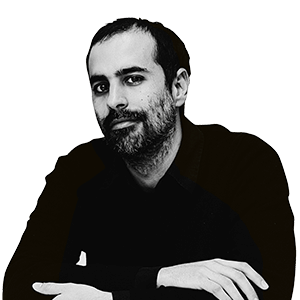Jafar Panahi: "If I don't make films, the Islamic regime will win, and I'm not willing to."
Filmmaker, premiere of 'A Simple Accident'


San SebastianJafar Panahi (Miyaneh, 1960), the greatest Iranian director of his generation and heir to his mentor Abbas Kiarostami, has also become a symbol of resistance against the Islamic regime of Iran, which long ago banned him from making any films. Indomitable, he continued to practice his craft thanks to the loopholes he found. After his latest imprisonment – seven months for criticizing the arrests of filmmakers Mohamed Rasoulof and Mustafa al-Ahmad – which He was released the day after he went on a hunger strike., Panahi has directed (from hiding) his most accessible and direct film: A simple accident, which opens in theaters this Friday. The film won the Palme d'Or at the last Cannes Film Festival. It's a thriller moral about the revenge of former prisoners of the regime against their torturer. He spoke with ARA a few weeks ago at the San Sebastián Film Festival.
A simple accident He directed it immediately after serving time in prison, where he suffered torture and went on a hunger strike. How did that experience shape the film?
— Everything that happens to us in our daily lives, whether incarceration or any other event, ends up being reflected in our way of seeing the world and expressing ourselves through art, which is the only way I have of processing the hardships I experienced in prison. You can go on a trip with friends and spend years talking about that vacation. In my case, it's impossible not to be influenced by having been incarcerated. Especially because the first time I went to prison, I was first in solitary confinement and then in a cell with a couple of people, but this time I lived with many prisoners, and I had long conversations during the seven months. And I wanted to make a film for the people I had met in prison.
Did you talk to the other inmates about the possibility of making this film after you left prison? Most of the protagonists are victims of repression, just like you and them.
— No, when I was in prison, I never imagined that one day I would make a film like this. When you're in prison, you don't think about making films, period. And when I was released, I felt confused. Months after leaving prison, I still didn't know what I wanted to do, or even if I wanted to make more films.
Despite the drama of the story, the film also has a lot of humor. Was comedy a necessity for you, a bit of light after so much darkness?
— Humor is a feeling that is part of the Iranian people. Without humor, we couldn't live. And I try to portray the normal lives of people who need humor to alleviate the bitterness of everyday life. The story would seem artificial if it weren't told with humor, which is intertwined with Iranian identity.
How was it experienced in Iran when a film so critical of the regime won the Palme d'Or and received unanimous applause from around the world?
— When the Cannes Film Festival ended, I returned to Iran, and at the airport, I met some friends, family, and relatives of prisoners who came to greet me and express their joy at the award. It's a small example of how the Iranian people received the news. A group of Iranian filmmakers also came; for them, the award is very important because it represents the hope of one day being able to express themselves through their films and have their films seen all over the world.
The film makes it clear that revenge will not help build a more just and free Iranian society.
— I'm just trying to speak to the humanity of the characters. And to show where this cycle of pain and revenge leads. Will we continue acting this way or will we seek another path? As I try to show in my films, the key isn't forgiveness, but justice and improving people's daily lives. I'd like people to think about this. What will our future look like? That's what seems most important to me.
Will this film be available to watch in Iran at all?
— My films cannot be shown publicly in Iran. People haven't been able to see them in theaters, except for my first film, The white balloon, written by Abbas Kiarostami. But there are people who can see them online, clandestinely. It's frustrating that my people have so much trouble seeing my films, because I make them for them, but it's one of the consequences of living under a regime like this. But my mission is to make films. Maybe they can't be seen now, but maybe in the future they will. What should I do if I can't show my films in Iran? Stop making films? The regime doesn't want me to make these films. If I don't make films, the Islamic regime wins, and I'm not willing to do that.
Other Iranian filmmakers who have run afoul of the Islamic regime have opted for exile. Mohamed Rasoulof, for example, fled to avoid a sentence of flogging and eight years in prison. Have you considered exile? He would have had much more freedom to film, especially after winning the Palme d'Or.
— I've always said I'd return to Iran, and I always have. It's my country, my culture. In Spain or any other country, I'd always be a foreigner. When the Civil War broke out here, many people left, but many others stayed.
The majority did not have the option to decide.
— Yes, you're right. But it was their home, their land. And people want to live and work in their homes. So do I.
